What is the future of higher education around the world? And what opportunities do the changes brought on by COVID-19 offer for rethinking the role of universities in achieving the SDGs?
On July 8, 2020, the SDG Academy was proud to co-host “Where Next? Redesigning Further Education for the Future,” a special event of the Higher Education Sustainability Initiative (HESI) hosted alongside the United Nations High-level Political Forum.
In addition to the SDG Academy facilitating the webinar, our own Head of Program and Partnership and HESI Co-chair Florencia Librizzi served as Master of Ceremonies.
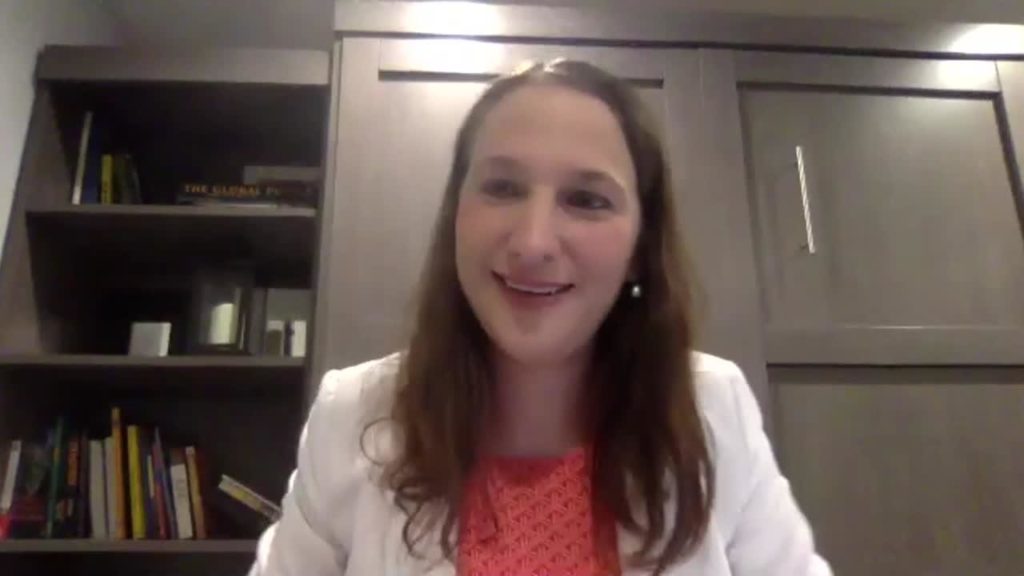
The event brought together expert speakers from the United Nations System, academia, and civil society, as well as student leaders, to discuss the vital role that higher education institutions play in society, and how to redesign higher education in support of sustainable development, a green recovery, and regenerative pathways for education. Together, they stressed the need for radical reform across the sector, from teaching and research to infrastructure and community development; called for a renewed commitment to interdisciplinarity and integrating the SDGs across the curriculum; and emphasized the crucial role of higher education in preparing students to make more sustainable choices, and to become better citizens and better people.
Florencia began the event by reflecting on the history of HESI, with its origins in the run-up to the Rio+20 Conference, and set the tone for discussion with the hope that the HESI partnership will encourage higher education to bring about necessary change and regeneration.
Attendees then heard welcome remarks from Ms. Stefania Giannini, Assistant Director-General for Education at UNESCO, who shared research about the state of higher education under COVID and highlighted the need for more cooperation within and beyond the sector; H.E. Mona Juul, President of UN ECOSOC, who stressed the need to tackle inequalities in higher education access; and Mr. Elliott Harris, Assistant Secretary-General for Economic Development and Chief Economist at UN DESA, who outlined priorities for the post-COVID recovery and the role that science and technology play in “building back better.”
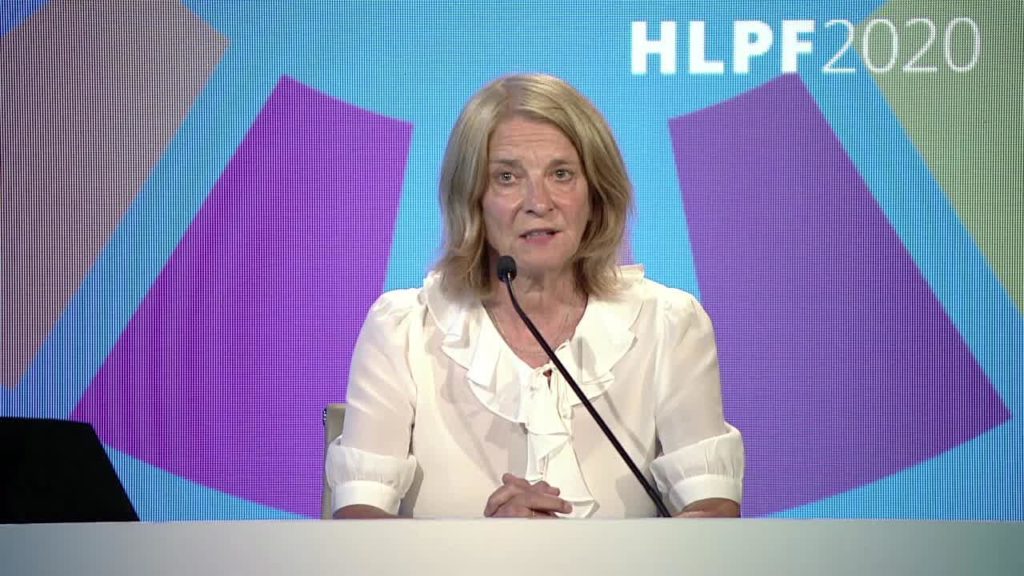
Mr. Nathaniel Smith, Founder and Chief Equity Officer for Partnership for Southern Equity, set the context for the discussion. He stressed that “the world will never be sustainable without being just,” and called on higher education to use knowledge and pedagogy to engage local communities and create a more holistic education for everyone.
Next, Mr. Sam Barratt, HESI Co-chair and Chief of Youth, Education and Advocacy at UN Environment, urged the HESI community to leverage its unique strength to drive the higher education sustainability agenda forward. “What was important is now urgent,” he said.
Dr. Hilligje van’t Land, Secretary General of the International Association of Universities and Executive Director of the International Universities Bureau, presented research on how universities can ensure more access and equality, global engagement, and societal relevance.
She then introduced Columbia University Professor, SDSN President, and long-time SDG Academy faculty Jeffrey Sachs for the keynote speech. Prof. Sachs echoed earlier speakers’ points about equity and innovation in education, but his most impassioned call was for a renewed focus on values and the need to cultivate human goodness through higher education. To overcome the rising threat of nationalism and xenophobia, universities must embed the values of sustainable development across the curriculum, and take to heart SDG 4.7, which promotes education for sustainable development, sustainable lifestyles, gender equality, a culture of peace and nonviolence, global citizenship, cultural diversity, and cultural contribution to sustainable development.
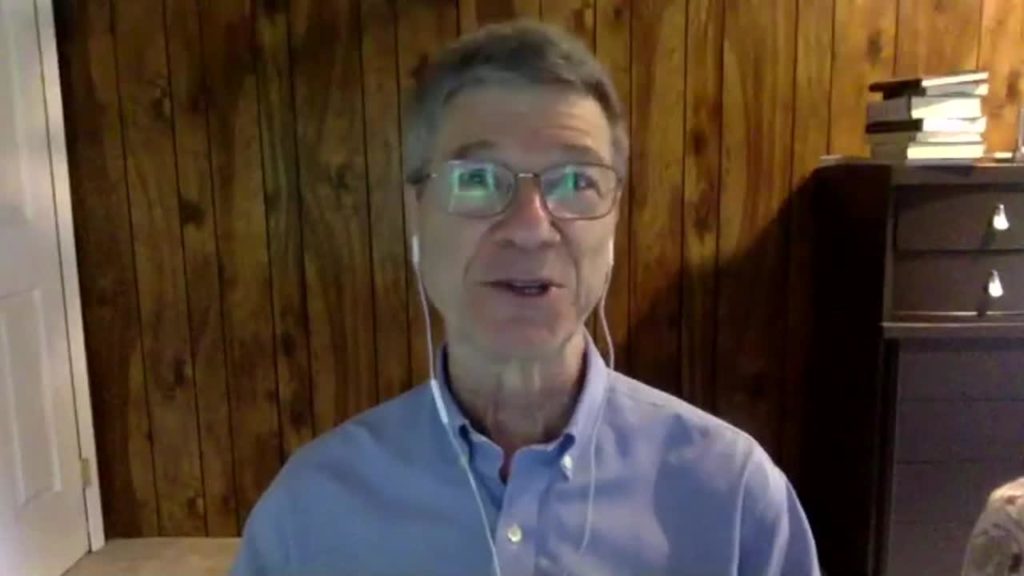
Finally, a session moderated by Mr. Satya Tripathi, UN Assistant Secretary-General and Secretary of the UN Environment Management Group, brought together perspectives from youth, university leadership, and government to discuss the role these constituencies play in supporting regenerative pathways for higher education.
Student leaders Zamzam Ibrahim from the UK, Amelie Deloche from France, and Rituraj Yadav from Nepal presented their work advocating for change in the sector. As Ms. Ibrahim said, “Young people understand the intersection between race, class, and climate. They know that education is the key to creating a more just and sustainable future.”
President of Arizona State University Michael Crow followed with “a view from education,” sharing examples of sustainability in higher education from ASU, known as the most innovative university in the United States, and calling on the sector to make radical changes. “We need to completely reconceptualize our universities,” said Prof. Crow. “Universities should be places where students and faculty gather to create learning environments in which ideas are produced that have never been produced before,” but they also need to reach the “millions and billions of people” who will carry the work of sustainable development forward.
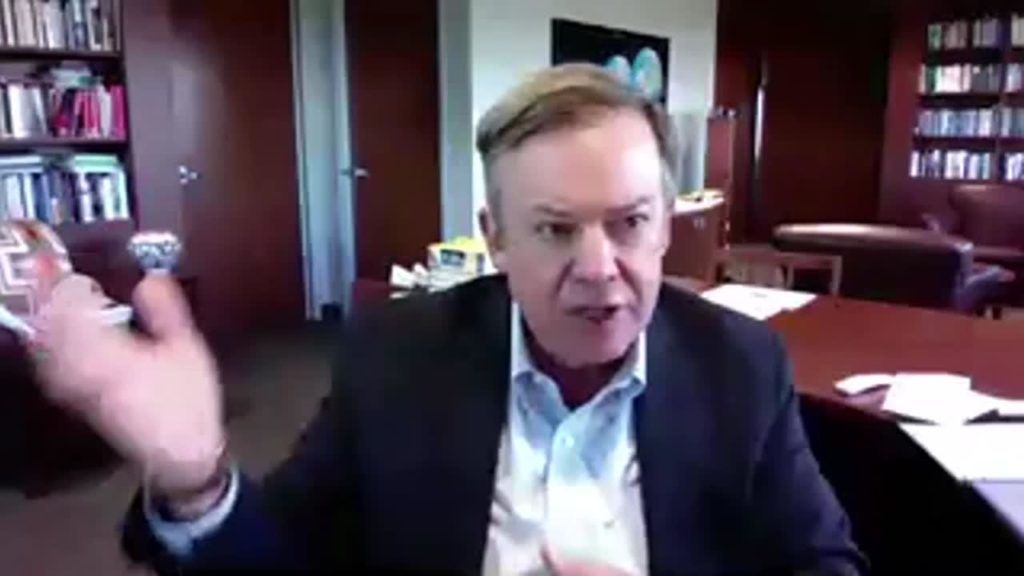
The session concluded with Dr. Rajiv Kumar, Vice-Chairman of India’s NITI Aayog, who acknowledged that times of crisis are also opportunities for change. In India, he said, the government is drafting a new higher education policy that will promote horizontal collaboration and recenter the curriculum around humanity and nature.
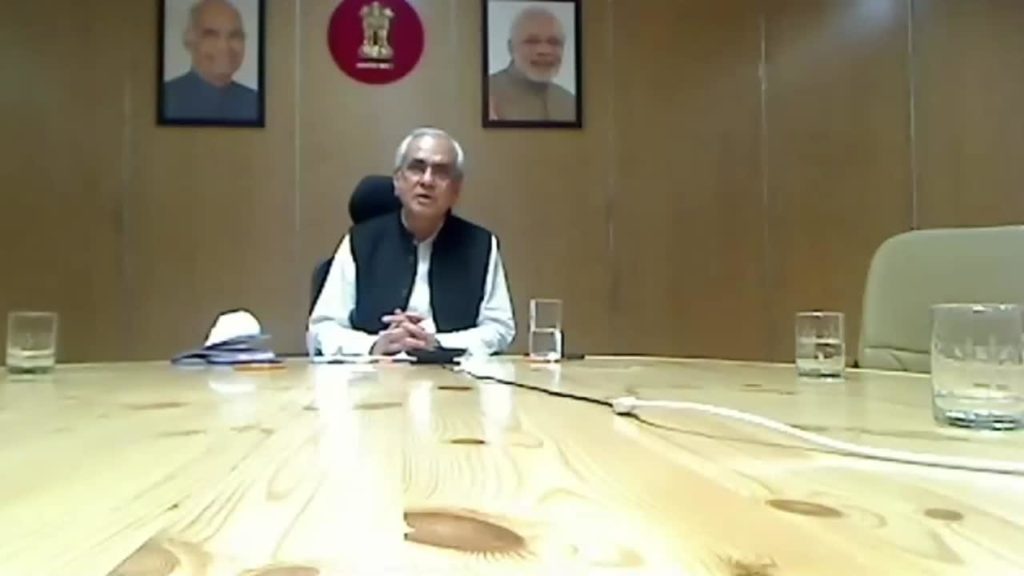
The event concluded with final remarks from HESI Co-chairs Florencia Librizzi and Sam Barratt.
The HESI event was followed by the announcement of the winners of the International Green Gown Awards, which recognize leadership of higher education institutions in integrating sustainability across their programs.
You can watch a recording of the entire event in our SDG Academy Library.


